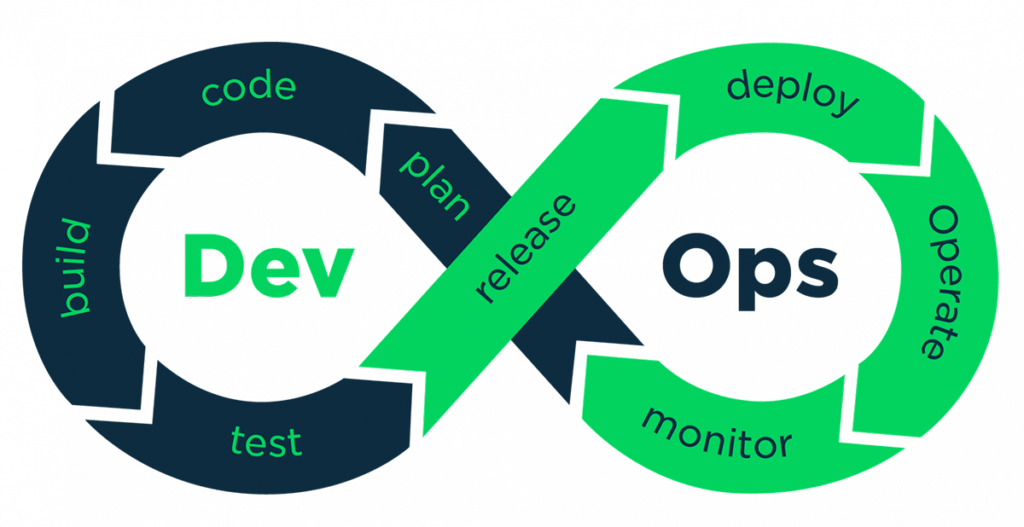DevOps engineer is the blend of development teams with Operation teams to develop products faster than traditional software development methods. DevOps is becoming popular quickly. Let’s look at how DevOps can help in the development of Loyalty Programs Software
If the operational and development teams work in silos, this makes the development process longer because of a lack of communication and collaboration between teams. When we combine these two, we can cut down on the time it takes to develop software shorter.
In addition, DevOps reduces development failures Rollbacks and allows the time needed to recuperate. The primary benefit of DevOps is regular code releases. This helps find problems and errors quickly, giving more time to correct problems or repair mistakes.
Table of Contents
Who is a DevOps Engineer?
There is no definitive definition of the term DevOps engineer. A DevOps engineer is a person working within a DevOps culture. The primary goal of a DevOps engineer would be to manage the release of code. In order to do that, they will need to collaborate with developers of software as well as system operators, testers as well as testers. To be an effective DevOps engineer, there are certain skills are required for him to be a successful DevOps engineer. This list will tell you the skills required.
Communication and soft skills
As we stated earlier DevOps strives to bring together operations and development. It’s obvious that the DevOps job involves a lot of communication.
Empathy is a skill that every DevOps engineer must possess to succeed. Your empathy will show through your team-first approach. Arguments and conflict are standard aspects of any teamwork. Your empathy will be evaluated. It is important not to let these arguments cause anger or frustration that isn’t worth it. Empathy can sever an argument Therefore, no one will hold grudges against anyone else.
Knowledge of source control systems
Source control systems or version control systems is the main tool behind the collaboration between different developers. As we know by now, DevOps brings people from different IT sectors such as development and operations. Therefore, it is quite an obvious source control systems or version control systems play a major role in any DevOps engineer life. Version control systems are used to track changes in the application. It also maintains different code versions of the application. Becoming comfortable with VCS tools requires some effort. They come with their own advantages and disadvantages. It is good for any DevOps developer to keep that in mind.
The following three reasons point out why Version control systems are important for DevOps culture.
- It avoids dependency issues in modern containerized applications.
- It directly affects the performance of DevOps
- VCS helps to build more reliable applications.
Any DevOps engineer should have good experience with any of the following tools.1.Git
2.CVS
3.SVN
4.Mercurial
Continuous integration knowledge
The foundation in DevOps involves Continuous Integration. It is also known as CI. CI is a collection of processes that form a component of the Build Pipeline. In the earlier paragraph that DevOps employs a Single version control system that is used by both the development team as well as the operational team. The thing CI does is merge the code of individual developers to one master version of the primary branch. It can be done multiple times in one day. This is the reason we call it continuous integration. Jenkins is a well-known software to help with CI. Every developer must be familiar with at least one CI tool if they want to succeed in their DevOps career.
The knowledge of containers
Many people believe that DevOps and containers were designed to complement one another. This container-based ecosystem has contributed to the growth of DevOps greatly. Containers have brought three concepts into DevOps culture: flow, feedback, and constant experimentation, which are now considered to be the three fundamentals of DevOps. Let’s take a quick look at the three concepts.
Expertise in the use of automation tools for infrastructure
Another crucial aspect that is essential to DevOps includes Automation. You cannot imagine DevOps without thinking of automation. The majority of routine tasks that are manual can be automatized with scripting languages, such as Python, Shell, Bash. Automation assists DevOps engineers ensure consistent performance. Additionally, it saves lots of time for DevOps engineers that can be utilized for more important objectives. Thus, understanding Automation is essential to the achievement of anyone DevOps engineer.
The cloud is a subject of study
The software development market is getting larger day by day. Because of this, the process of developing and releasing products has become extremely advanced in the last few years. The ability to adapt to changing conditions is an essential element to succeed in this highly competitive marketplace. A majority of companies have begun using cloud computing because of the advantages that cloud computing can provide.
Testing
The main objective of DevOps is to accelerate the delivery of software. But there is no point if there are bugs in whatever you deliver. The quality component is an important factor in any software release.
Therefore every DevOps team must adopt continuous testing to their DevOps culture. Therefore, Testing is an important skill for anyone who is going to be a DevOps engineer.
Read More: Policy to Protect Your Data Privacy on Mobile Apps
Collaboration
DevOps engineers do not work for personal goals. They have team goals. Any problem is everyone’s problem. DevOps engineers should help to assist coworkers in their troubles. The key is to have empathy towards others. Another point is, DevOps engineers work in small batches from performing code to doing acceptance testing. It allows coworkers to do their job easily.





